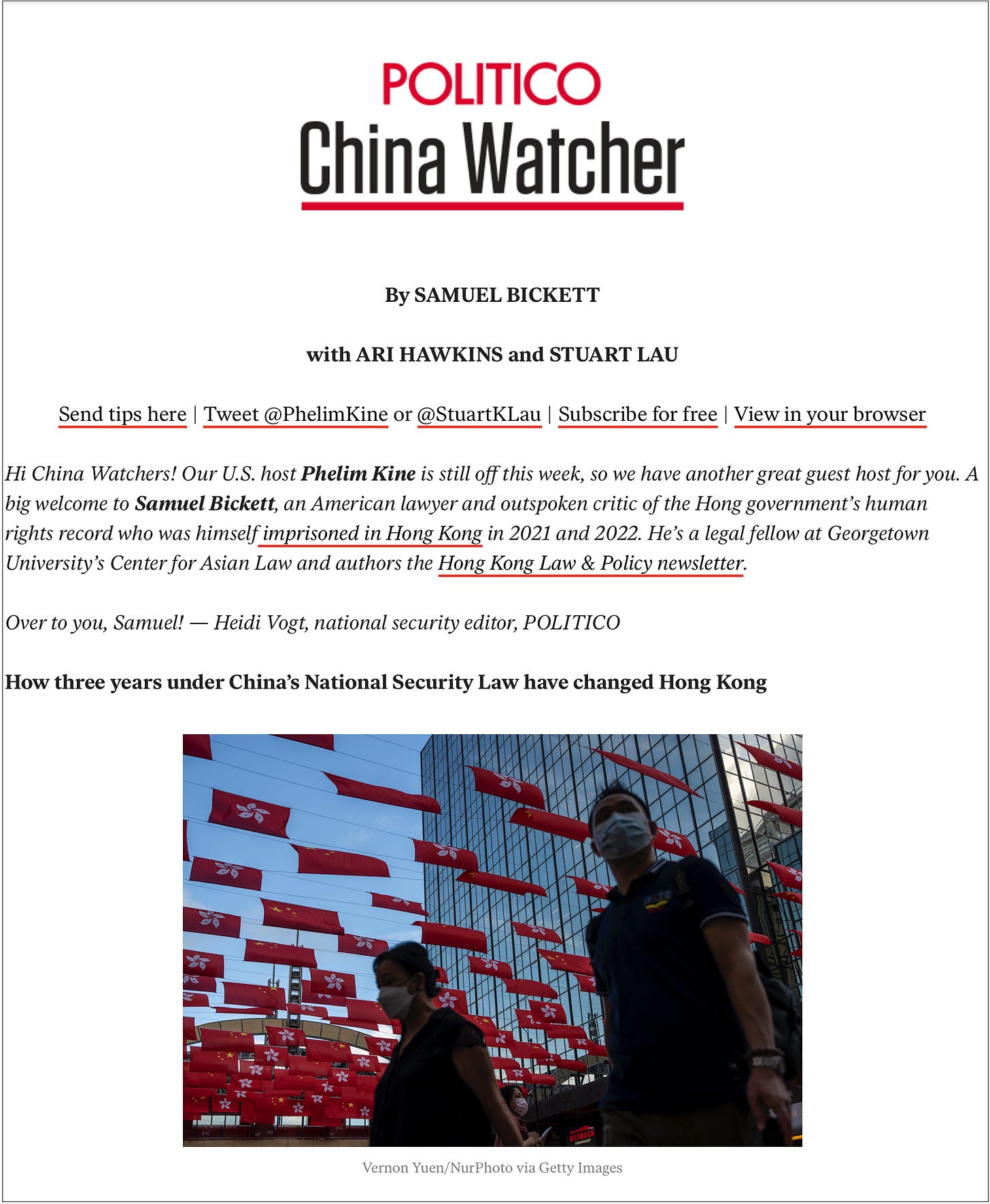How three years under China’s National Security Law have changed Hong Kong
My reflection in today's Politico China Watcher
My articles will always be freely available to all, but they take a lot of time and effort to write. If you can afford it, please consider supporting my work with a US$8/month or $80/year donation. You can also support my Hong Kong advocacy abroad by subscribing to my new Patreon, where I post reflections and updates on my DC activist work. I’m grateful for your support.
In today’s Politico China Watcher newsletter, for which I’m the guest author this week, I offered up a reflection on the three year anniversary of the National Security Law, the ways it’s been used to drastically curtail Hongkongers’ freedoms, and why there is reason to be alarmed about what’s still to come.
Earlier this month, The Hong Kong government opened a new chapter in its ongoing national security crackdown when it decided to criminalize a song: the protest anthem “Glory to Hong Kong,” cherished by those who fought for the city’s freedoms in 2019. The DOJ alleged in court that those disseminating the song are violating the 2020 National Security Law (among others) and is seeking a ban on its performance and distribution.
The National Security Law — which turns three years old this week — has dramatically transformed Hong Kong society. The “Glory to Hong Kong” injunction application is just the latest salvo.
…
In the three years since, the government has arrested 248 people and charged 140 under the NSL and the associated colonial-era sedition law. Defendants include politicians, media moguls, book authors, radio hosts and ordinary citizens. Warrants have been issued against dissidents abroad, including American citizens, while a student visiting Hong Kong from Japan was recently arrested for remarks she made while overseas.
More than 70 percent of those charged have been denied bail, and with trial dockets backed up, a large number of these detainees continue to languish in prison without trial. Many have chosen to plead guilty, despite serious doubts as to whether they violated any law.
You can read the rest at Politico.




